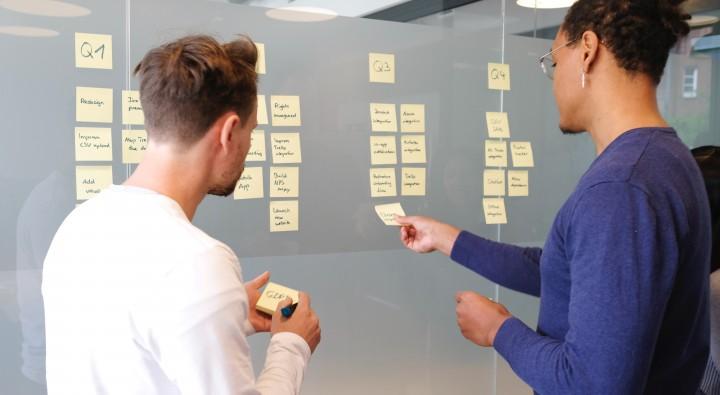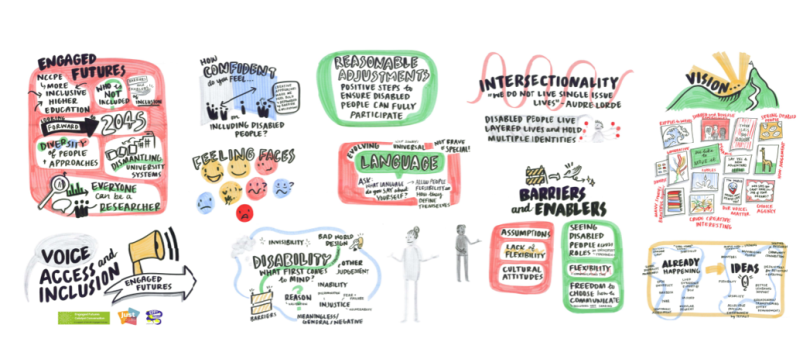Responses to the Government’s R&D Roadmap: perspectives on public engagement
January 2021 saw the publication of the government's summary of responses to the UK R&D Roadmap. We explore what the summary had to say for public engagement.

28 / 01 / 2021
The draft Government Research and Development Roadmap, which aims to set out the UK’s vision and ambition for science, research and innovation, was published in July 2020 and nearly 400 people or organisations responded – including the NCCPE.
We outlined our response in this blog, and published our final response in September 2020.
Last week saw the publication of the government's summary of responses to the R&D Roadmap. We were pleased to see that many of the arguments we rehearsed in our response, and in those of colleagues across the sector, were picked up and highlighted.
We have gathered a quick summary of the relevant responses for public engagement, as a useful starting point for those interested to know more.
Public engagement should be embedded in the research and innovation system
We argued that public engagement enhances all areas of innovation – and so needs to be factored in across the whole R&D system, not bolted on. We were pleased to see the summary acknowledge this:
A whole systems approach [would help] to help bridge the gap between research, innovation and adoption of new technologies. Responses suggested that incentivising collaboration and engagement between all aspects of the R&D landscape, including public and patient involvement in research, could help to increase the understanding of innovations in society (p.10)
Our response emphasised the need for capacity building in engagement and highlighted the expertise of the Public Engagement Professional (PEP) community, as a key resource for realising the ambition of the roadmap. This focus on supporting excellent practice in engagement was picked up in one of five key cross-cutting themes highlighted in the executive summary, which called for:
Greater support for collaboration and knowledge exchange across the R&D landscape - academia, industry, the public sector, the public, and across sectors, nationally and internationally. (p.6)
Public engagement requires long-term and sustained funding
We were happy to see this point referenced on a number of occasions in the summary:
Increased funding for both research and innovation activities, as well as for public engagement activities, was viewed as important to inspire and support the next generation (p.15).
It was recognised that public engagement has received increased prominence over recent years and embedding good practice across the R&D system would be beneficial to ensure investments are in line with public priorities at both a national and local level. Responses suggested that scientists and researchers could be further supported to carry out science communication and public engagement activities and receive appropriate recognition for doing so (p.15).
Increased funding for both research and innovation activities and public engagement.
Responses suggested that public engagement was often carried out at the expense of research due to competing resources and that more funding for public engagement could be incorporated into grants. Long-term and sustainable investment could inspire and support the next generation (p.15).
Public engagement can contribute to a more diverse, responsive and engaged research system
Our argument that public engagement can make a significant contribution to ‘opening up’ research was reflected in several places in the summary:
Responses suggested that research must be informed by, and partnered with, a wide range of relevant stakeholders to achieve real-world impact (p.17)
Also here:
Wider engagement with a diverse range of voices to build a better understanding of the strengths, opportunities and needs of different areas could be beneficial (p.15).
While the summary of responses tends to emphasise public engagement as a means to communicate about research and innovation, and building support for it in society, we think there are some useful openings here to continue to argue for the importance of public involvement in research, and to secure increased investment in this area of work. This was much the focus of UKRI CEO Ottoline Leyser's keynote presentation at Engage last month, which is available to watch on our YouTube channel.
Ensuring Public Engagement features prominently in the emerging research policy landscape is clearly an important priority of all of us over the next few months. We look forward to working with you all to achieve this, and wanted to take this opportunity to thank everyone who fed back on our draft response last year.

